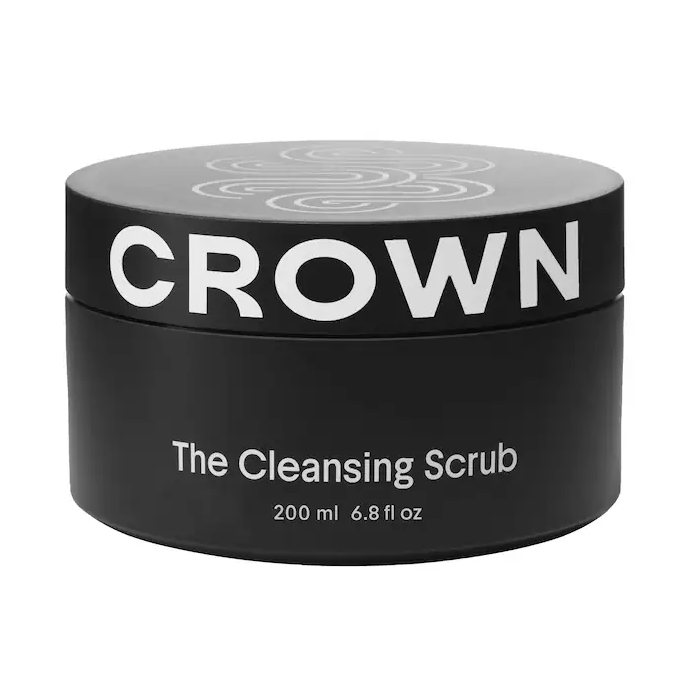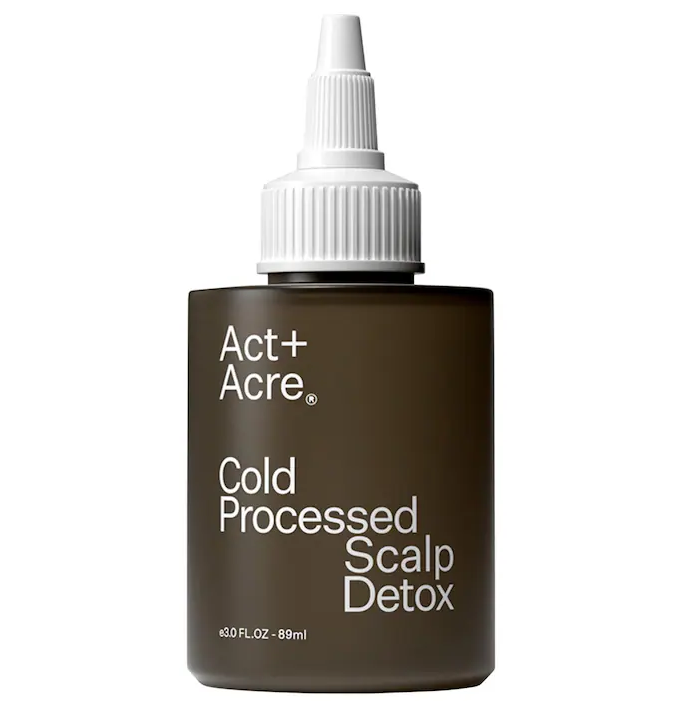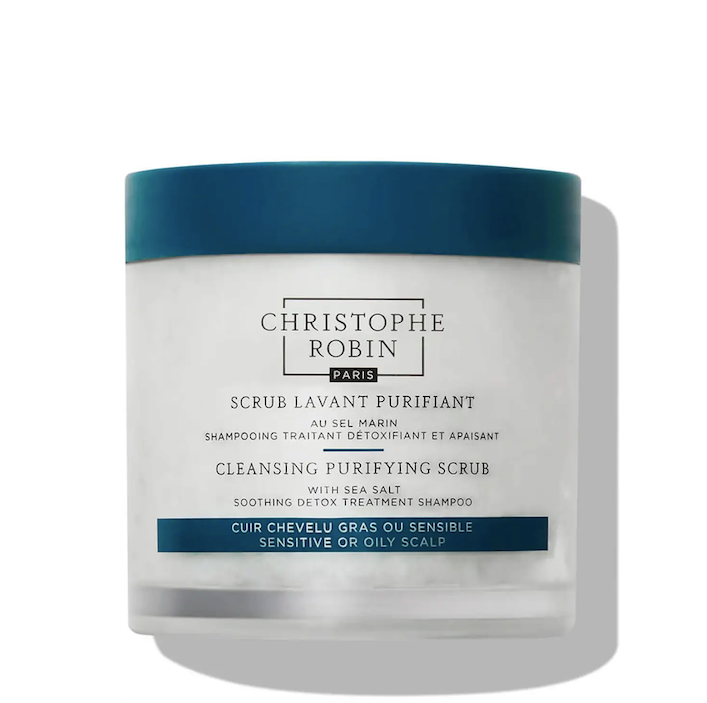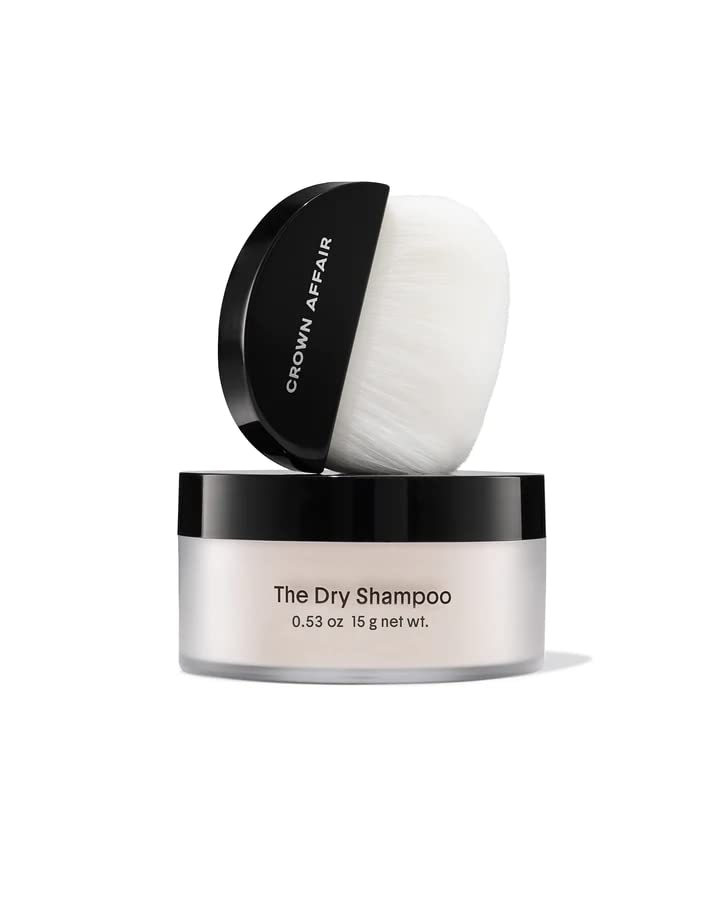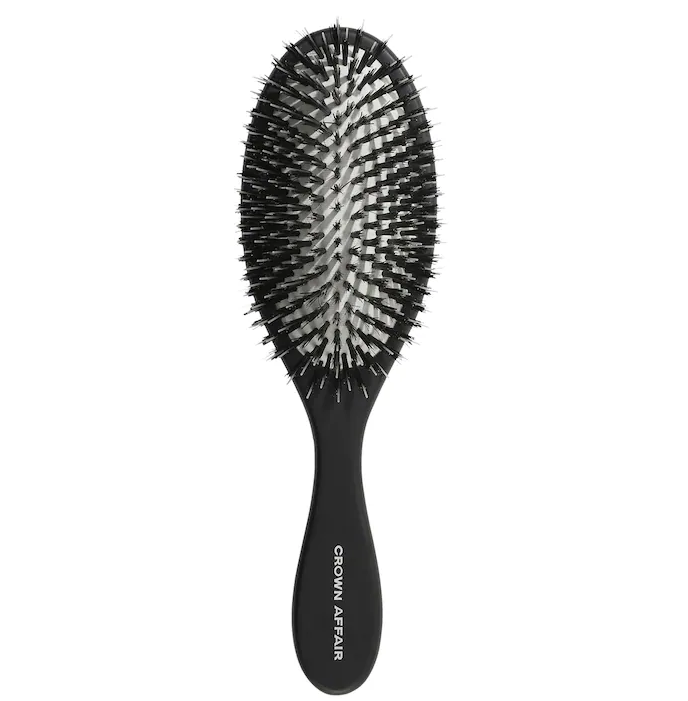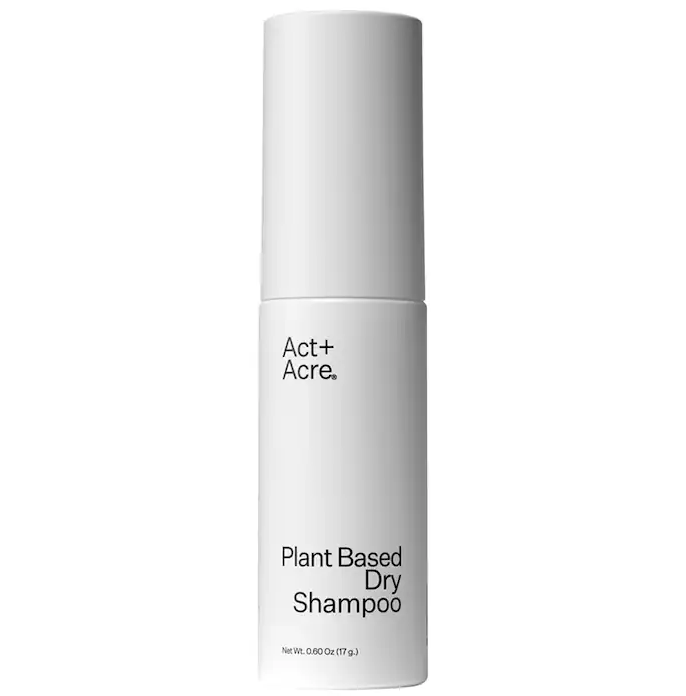If you want to incite some drama at a dinner party, ask people how often they wash their hair. Okay, maybe don't do that if it feels intrusive. But among the people I know I can tell you, everyone does it differently and there is no universal 'right' or 'wrong' way to clean your scalp.
We all have different hair and skin needs. For Black women, wash day is a ritual that happens maybe once every two weeks, if not longer if their hair is in a protective style. On the other side of the coin, some people shampoo their hair in the shower every single day. Those in that group often, daily shampooers, might find themselves thinking, 'wouldn't it be nice if I could go three days between washes.' Like me, you may find yourself on 'hair training' TikTok.
AdvertisementADVERTISEMENT
What is hair training?
"Hair training involves changing your hair-washing routine to prolong the time between each wash, in an effort to 'train' the hair to produce less oil over time," explains trichologist Helen Reavey, the founder of the scalp-care line Act + Acre. Hair training — which also goes by 'scalp training' or 'oil training' on TikTok — is not a new idea by any means; one could argue that it dates back to the commercial introduction of dry shampoo in the 1940s.
But in 2024, the reason hair training is popular (TikTok videos on #hairtraining have amassed millions of views) has to do with the psychological optimization challenge: This idea that if you work at it — and practice washing your hair less — you can get manipulate your hair into an 'ideal' wash schedule. That might sound good, but is there any truth to it?
Can you actually train your hair?
The short answer: No, your hair is not a puppy — it can't be trained. Unfortunately most videos on the merits of hair training are going to lead you astray. I tried letting my hair just be, pulling it back into a slick bun to go longer between washes. But in the end my hair was just dirty — and my scalp needed serious scrubbing when I did wash it, which was more like once or twice a week instead of every other day.
"I actually don’t recommend hair training to anyone," offers Reavey. Most of these videos talk about building up your scalp's tolerance to less frequent washes until it 'adjusts' to a new schedule. But Reavey says this is all B.S. "Letting oil, product, and environmental pollutants build up on the scalp can be extremely damaging to the scalp microbiome and the overall health of your hair," she says. Plus, as trichologist Abbey Yung explains in a video on the topic, your scalp's sebum production is a function of your hormones, so 'training' your hair won't change the hormone function.
AdvertisementADVERTISEMENT
Moreover, hair training can actually cause problems, like hair thinning. Content creator Jojo Hadid recently posted a TikTok about what she learned after trying hair training. "Last year I went through a hair training journey and I was washing my hair once a week and loading it with dry shampoo," Hadid explains. She explains that infrequent washing and substituting with dry shampoo left her hair thin and brittle, possibly a result of buildup. "Now I'm back to washing it every single day and it's literally the healthiest it's ever been," Hadid adds.
@iamjojohadid Healthy hair starts with a healthy scalp - cool it with the dry shampoo! #hairtok #hairhealth #healthyhair #hairhealthtips ♬ original sound - J O J O H A D I D 💕
Now, I don't agree with the narrative that not washing your hair is gross or dirty — that’s rude. However, according to the experts, starving your hair of washes is not to its benefit, the way that those promoting hair training might lead you to believe.
Should I be washing my hair every day?
Some people may shame you for washing your hair every day but the truth is that most scalp experts — who know everything there is to know about hair health — are daily hair washers. "I actually do the opposite of hair training and typically wash my hair every day," says Reavey. "It really is a myth that you shouldn’t wash your hair too often. Would you ever go a day without washing your face? Oil on the scalp and hair is normal."
If you shampoo daily, keep on it. If you're an every-other day, that's cool, too. According to Reavey, there are clear signs it's time to wash: You have excess oil, noticeable odor, itchiness or irritation, limp hair, or difficulty styling. However, if you're looking to go an extra day every once in a while, there are healthy ways to get there, many of which I've implemented.
AdvertisementADVERTISEMENT
How can I wash my hair less?
There are certain strategies people try in an effort to wash their hair less. Some people talk about adopting a nightly dry-brushing ritual (brushing their hair, not their body) to redistribute oil from the scalp down the shaft of the hair. For example Dianna Cohen, the founder of Crown Affair and a hair content creator in her own right, says she brushes her dry hair with an ethically-sourced boar bristle brush every night. "I brush through my whole head for like three minutes," Cohen says. This polishes the hair and gently stimulates the scalp. "Do it for 30 days, your hair will change," offers Cohen who says she'll go four days between washes when dry brushing.
There's truth to this as Yung explains, that 60 to 67% of sebum produced on the scalp is removed by things like brushing and otherwise stimulating the scalp. So if you're washing less and noticing less oil, it's likely not because you're washing it less and your scalp is 'changing', but because you're actively removing sebum in other ways. Trying scalp gua sha, for example, could be helpful. Personally, I've gotten into the habit of brushing my hair before I step into the shower, which Yung recommends for "loosening buildup" making it easier for the shampoo to thoroughly cleanse the scalp and hair.
Another hair training trick involves switching up your shampoo. Many hair stylist recommend rotating your shampoos or 'hair cycling,' specifically using a clarifying shampoo or exfoliating scrub on washes when you want your hair to be super clean to give it max longevity. "If I'm only washing once every four days, I'll use a cleansing scrub," explains Cohen. She specifically uses the Crown Affair Cleansing Scrub (Christophe Robin Salt Scrub and Goop Salt Scrub are similar alternatives). "I use a tiny dollop — I emulsify it and the granules dissolve — and it lifts the hair off the root," Cohen explains. "This can help me extend an extra two days on the backend."
AdvertisementADVERTISEMENT
Reavey cosigns on hair cycling. "Once a week, before I shower, I use one of our [Act+Acre] exfoliating treatments, either Scalp Detox or Scalp Renew," Reavey explains. "Both work to clear flakes, reduce inflammation and support the scalp microbiome." You don't want to overdo it, though. Think of scalp exfoliation like skin exfoliation, typically once a week is good. "Overwashing can strip the scalp and the hair of good bacteria which is needed to create a healthy environment for hair growth," Reavey adds. "Another important factor when washing your hair is the temperature of the water you are using. Both extremes, hot and cold water, can cause problems such as dehydration and constriction of nutrients to the scalp. It is always best to use lukewarm water on your scalp."
Another pro tip is to invest in dry haircuts. "Once a week someone DMs me and asks, 'where do you get your hair dry cut and what do you ask for?'" says Cohen. She explains that precision dry cuts (with Teddi Cranford at White Rose Collective in NYC) help "de-bulk" her hair so it's less heavy and therefore can usually extend longer between washes because it feels lighter, and there's less surface tension on the scalp.
Is dry shampoo okay?
In general, dry shampoo is falling out of favor among scalp experts. "Although dry shampoo makes our hair and scalp look better temporarily, it can lead to a large amount of buildup on the scalp, blocking the hair follicles and causing various scalp issues," explains Reavey. Instead of aerosol dry shampoos, try newer fine-ground powder innovations that include plant-based ingredients. "Tapioca powder and rice starch are great, scalp-positive alternatives to the harsh ingredients typically found in dry shampoos," says Reavey. "They work to gently absorb oil, odor, and excess sebum to refresh the hair."
AdvertisementADVERTISEMENT
The Crown Affair Powder Dry Shampoo takes inspiration from the iconic Laura Mercier Translucent Setting Powder, but it's formulated for the scalp. It uses Japanese Persimmon Powder, which is super fine and never feels gritty on the scalp. Plus, it comes with a kabuki brush. The Act + Acre Dry Shampoo is similarly fine and applies without a residue.
Are slicked-back styles okay?
When my hair is in need of a wash, I sometimes stretch it another day with a slicked-back bun that uses my hair's natural oils. But I wonder, is this okay? "I think going an extra day with a slicked-back bun is totally fine," says Reavey, "and using your natural oil is better than adding product to your hair." It's actually better for your hair to do these styles on dry, dirty hair because wet hair is more fragile.
"Some things to note: Tight hairstyles can put excessive stress on the hair, so you just want to make sure that you’re being cautious of how often you do them; always try to use soft hair ties, made out of silk or satin to limit breakage on the ends," Reavey adds. You can use a hair mask or a lightweight, dissolvable hair gel (like this one from Crown Affair) to add extra hydration and slip to your slicked-back bun, but make sure to wash it out at the end of the day.
Remember, there's a lot about our hair that is out of our control — like our sebum production and hormones — and we shouldn't try to control them. Luckily, what we can control is how we treat our hair. Exploring new hair routines and rituals could change your hair for the better, and make you appreciate your unique wash day ritual, however frequent or infrequent.
This story was originally published on October 23, 2023 and has been updated.
At Refinery29, we’re here to help you navigate this overwhelming world of stuff. All of our market picks are independently selected and curated by the editorial team. If you buy something we link to on our site, Refinery29 may earn commission.
AdvertisementADVERTISEMENT







